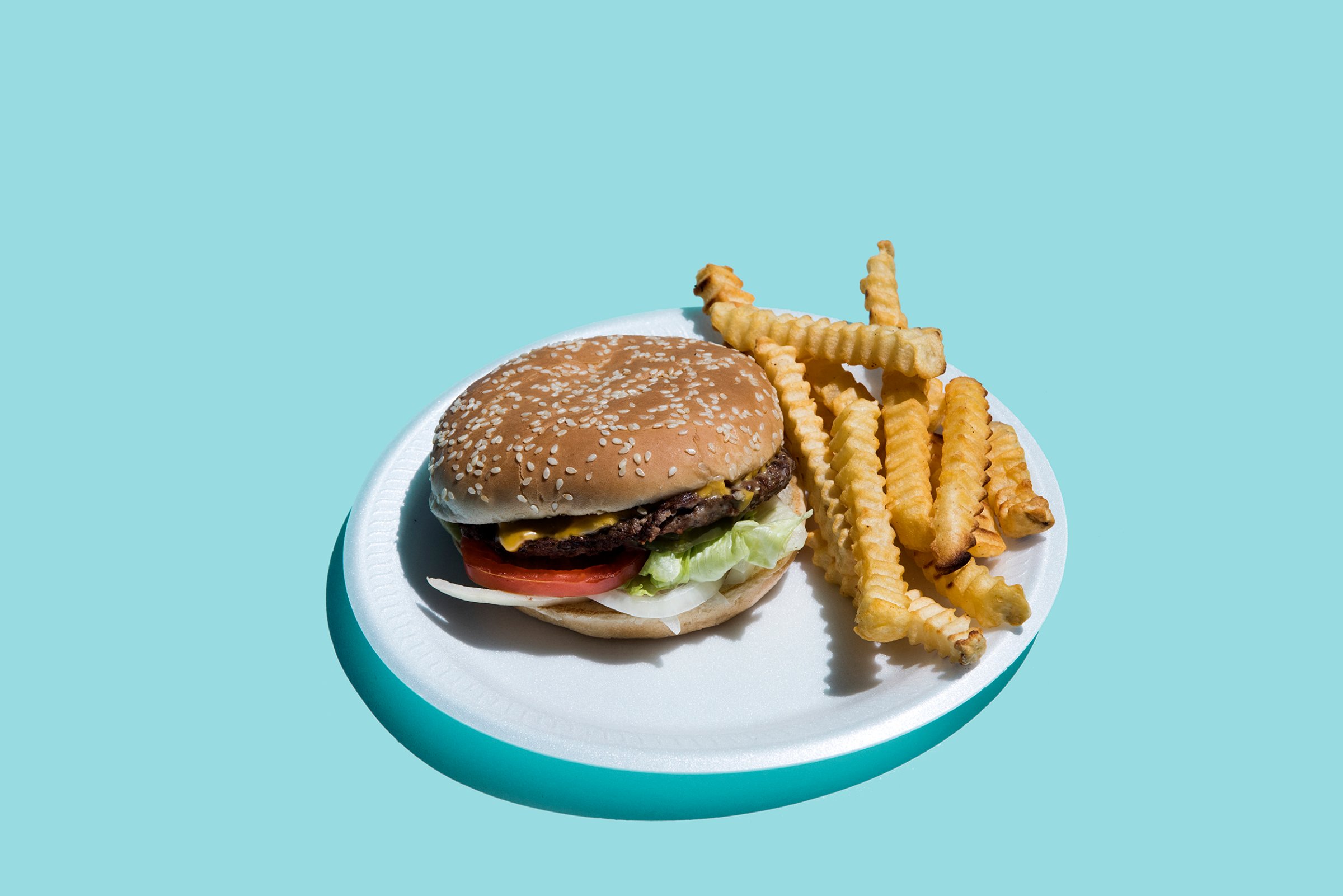
Have you ever noticed that the less you sleep, the more hungry you feel the next day? Research suggests that this is indeed true. But you might not realize how many extra calories you’re taking in (spoiler: it’s more than you’d think).
In a new study published in the European Journal of Clinical Nutrition, researchers set out to put a number on those surplus calories consumed by the tired and weary. In recent years, adequate sleep has emerged as a third pillar, along with exercise and healthy eating, as a way to help control weight. Previous studies have linked a lack of sleep with obesity and even type 2 diabetes; but this is one of the first times researchers have calculated the caloric effect of insufficient Z’s.
To do so, they pooled results from 11 previous studies that looked at “partial sleep deprivation” and calorie consumption. Partial sleep deprivation “means that people were sleep deprived for part of the night but not for a full night,” author Gerda Pot, PhD, explained in an email. “Partial sleep deprivation could affect sleep quantity and/or quality.”
In all, the studies included 172 people ages 18 to 50, both male and female, who were either normal weight, overweight, or obese. All of the studies included control groups of people who did get enough sleep—7 to 12 hours in bed at night. People in the sleep deprived groups logged between 3½ to 5½ hours in bed.
Health.com: 30 Sleep Hacks for Your Most Restful Night Ever
The researchers found that the sleep deprived consumed an average of 385 calories extra per day, about the equivalent of four and a half slices of bread, says Pot, who is a visiting lecturer in the Diabetes & Nutritional Sciences Division at King’s College London, and also an associate professor at Vrije University Amsterdam. (To put 385 calories into context, it’s close to a fifth of the energy needs of a moderately active 30-year-old woman.)
“Moreover, people proportionally consumed more fat and less protein,” Pot added. Carbohydrate consumption stayed roughly the same.
Other researchers have speculated that a lack of sleep might affect hormones related to hunger, such as leptin and ghrelin. But Pot and her co-authors believe the explanation may be “hedonic,” meaning the tired overeat because they’re seeking pleasure.
Sharon Zarabi, RD, director of the bariatric program at Lenox Hill Hospital in New York City, shares the same suspicion. The urge to binge may be “because they are more jittery and can’t satisfy their anxiety with eating,” Zarabi (who was not involved with the study) wrote in an email to Health.
Health.com: How to Stop Overeating Once and For All
Sadly, the researchers also found that staying up later doesn’t actually burn extra calories, suggesting that not getting enough sleep over the long term could be a recipe for weight gain. But none of the studies included in this review lasted more than two weeks, making it impossible to know if those extra calories add extra pounds as well.
The authors are now doing a study with people who regularly don’t get enough sleep to see if that is the case. “We need to do more research into sleep as a possible remediable risk factor for obesity and possibly other cardio-metabolic diseases like diabetes, especially in today’s society in which trends are showing that people sleep less,” Pot said.
This article originally appeared on Health.com
More Must-Reads from TIME
- Why Trump’s Message Worked on Latino Men
- What Trump’s Win Could Mean for Housing
- The 100 Must-Read Books of 2024
- Sleep Doctors Share the 1 Tip That’s Changed Their Lives
- Column: Let’s Bring Back Romance
- What It’s Like to Have Long COVID As a Kid
- FX’s Say Nothing Is the Must-Watch Political Thriller of 2024
- Merle Bombardieri Is Helping People Make the Baby Decision
Contact us at letters@time.com